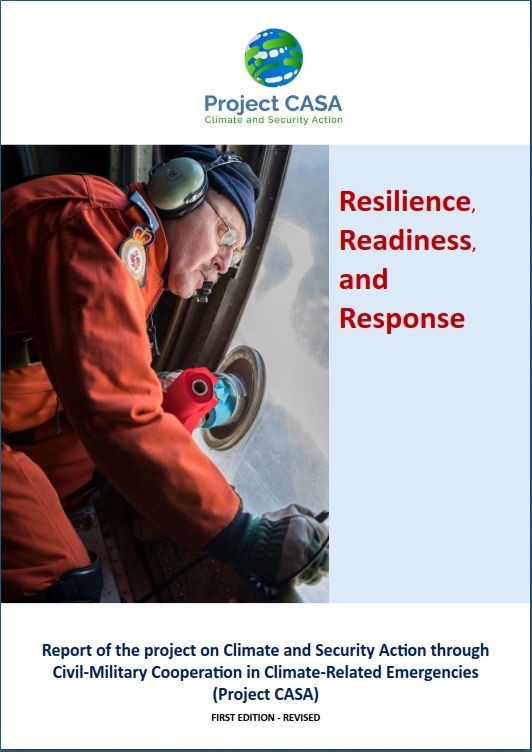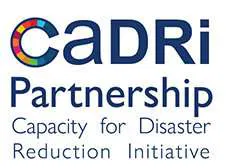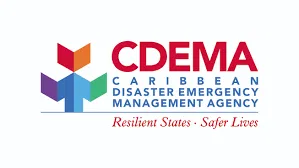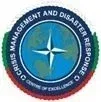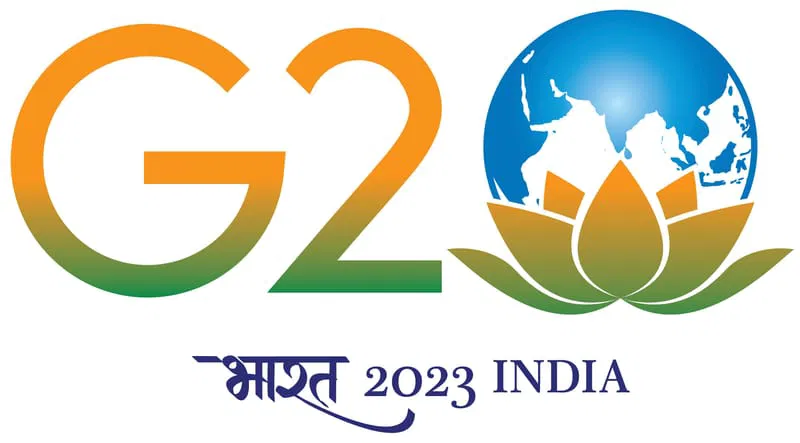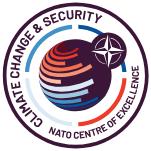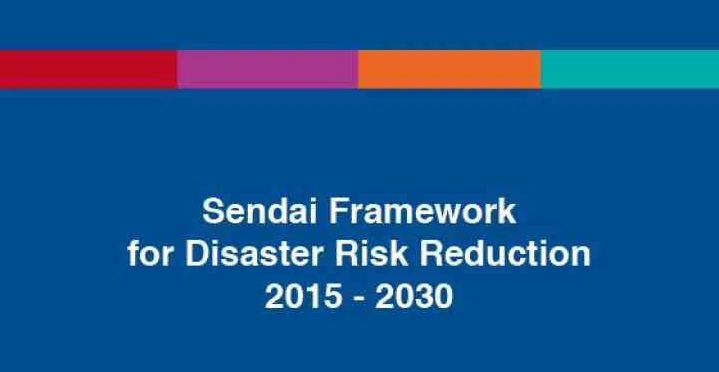FINAL REPORT
Resilience, Readiness, and Response
Report of the project on Climate and Security Action through
Civil-Military Cooperation in Climate-Related Emergencies (Project CASA)
Project CASA studies the extent to which several NATO and non-NATO countries have engaged their national militaries in responding to climate-related emergencies. It examines trends in these responses over time, the degree to which national militaries have the resources and mechanisms needed to prepare for and respond to these emergencies, and the consequences for force composition and readiness from participation in civil protection operations.
The project does so through an interdisciplinary network of experts who are working to collect, analyse, and publish data on relevant military activities and civil-military cooperation.The project aims to provide actionable data for decision makers, stakeholders, and the wider public on how militaries are working together with civilian emergency management agencies within countries and across international borders.
This report contains:
- A set of country profiles which explore the Project CASA research questions as they relate to several NATO countries, NATO partners and other countries globally with high climate security risks and/or high civil or military involvement in climate emergencies as well as details on each country’s legal, funding, and operational frameworks and related policies, procedures, and guidelines on military involvement in climate-related emergencies
- The first cross-national dataset on military involvement in climate-related disasters in both domestic and foreign civil protection operations — both for individual countries and comparatively across countries.
- A guide to related international / intergovernmental organizations and mechanisms including several involved in civil-military cooperation.
It concludes with policy options and practical recommendations for relevant EU, NATO, UN, and other institutions, member states and civilian stakeholders with whom militaries interact in emergency response including suggestions for further research and actions to support increased knowledge sharing, cooperation and coordination in the face of growing challenges.
It also highlights good practices that can be advanced from the bottom-up by local authorities and citizens.
>>> Read the Press Release / Report Summary >>>
>>> DOWNLOAD THE REPORT >>>
"As a beneficiary of this report, the NATO Climate Change and Security Centre of Excellence (CCASCOE) appreciates its valuable contribution to advancing the understanding of climate security challenges and civil-military cooperation. With CCASCOE researchers participating in both the advisory and expert groups of Project CASA, involvement in this project has provided the centre with useful insights by examining the diverse approaches of allied nations in climate security risk assessment and civil-military collaboration. The recommendations support CCASCOE to consider the role it can play in the future facilitating the sharing of operational lessons and identifying productive partnerships, within Canada but also globally, including NATO’s EADRCC, CMDR COE, EU structures, the Sendai Framework, and other regional institutions, where cooperation can be most effectively strengthened." - Dr. Katie Woodward, Head of Research, Analysis and Lessons Learned Branch, CCASCOE
"The Project CASA report framework is comprehensive, the case studies from military climate disaster practitioners are priceless, and the systematic cross-national comparison of approaches is absolutely what is needed to improve domestic and international response. The report is proof of the value of NATO in assembling the best global experts to come to confident conclusions without duplication of effort and taking on board lessons learned from the long list of consequences from disasters brought on by climate change. Readers cannot help but be impressed by the military’s ability to mobilize and deploy rapidly, to operate and communicate in difficult terrain and austere conditions, and to improvise when necessary." - Durwood Zaelke, President, Institute for Governance and Sustainable Development
Abstract
As climate emergencies beset communities with increasing frequency and severity, national militaries play a key role, working alongside civilian responders and often facing calls for greater involvement when civilian capacity is strained. Whether militaries should be involved in preparing for and responding to climate emergencies is a matter of considerable debate, and views vary depending on the context, country, political culture, and whether involvement is within national borders or beyond. What is clear, however, is that national militaries are already engaged in these roles and, with the rising number of climate emergencies globally, the pressure for military involvement in such emergencies is also likely to increase when civilian agencies cannot respond at the speed or scale required.
Despite these challenges, there has been very little systematic cross-national information on country approaches to military involvement in climate emergencies. Project CASA seeks to help fill this gap by assessing the nature, extent, and impact of military involvement in such emergencies across a range of countries. It has done so by consulting with government and military officials in countries in NATO and beyond to compile information on their approaches to engaging the military in preparing for and responding to climate emergencies, as well as the impacts this has had on force structure and operations.
This project’s country profiles and dataset provide new comparative information on core frameworks shaping the use of national militaries in domestic and cross-border operations for civil protection during climate emergencies. This includes information on countries’ current legal and policy frameworks, operational frameworks, military training, delineation of military and civilian roles, and international coordination. It also includes their perspectives on the potential advantages and disadvantages of increasing military involvement in civil protection, as well as the comparative advantages of civilian and military agencies. The aim is to understand the increasing demands placed on national militaries amid expanding climate emergencies globally and to share the range of approaches countries are using to manage these.
Chapter Synopses:
Part 1: Introduction
1.1 Foreword By Alice C. Hill
“This report explores the growing demand for military involvement in climate emergencies worldwide. It provides an in-depth analysis of national frameworks, operational strategies, and international coordination mechanisms shaping civil-military cooperation in all aspects adapting to climate change - resilience to climate shocks, readiness to respond, and response and recovery. … The report serves as both a call to action and a resource for policymakers, practitioners, and stakeholders committed to addressing one of the defining challenges of our time.”
1.2 The Imperative for Civil-Military Cooperation By Members of the Project CASA Coordinating, Advisory, and Expert Groups
This chapter highlights the growing consensus among global entities, including governments, militaries, and scientists, that climate change poses severe security threats. It illustrates this with data on the escalating frequency and intensity of extreme weather events, resulting in significant economic losses, deaths, and human displacement. The sources emphasize the military's increasingly vital role in disaster response, often acting as first responders when civilian capabilities are overwhelmed, challenging traditional "last resort" principles for military involvement. Furthermore, the text explores the military's expanding engagement beyond immediate response to include prevention, prediction, and adaptation efforts alongside international organizations like the EU and NATO, underscoring the imperative for enhanced civil-military cooperationand shared resilience in addressing these complex challenges.
1.3 Project Origins, Objectives, and Activities By Ronald A. Kingham
Project CASA originated from the recognized scarcity of data on military involvement in disaster response and the need for better civil-military coordination in climate-related emergencies. Initially suggested by Dr. Susanne Michaelis in 2018, the project evolved through collaborations among various organizations, including NATO's Emerging Security Challenges Division and the European Organisation of Military Associations and Trade Unions. Its core objective is to collect, analyze, and publish actionable data on how militaries worldwide engage in climate-related emergencies, examining trends, resources, and their impact on force readiness. Project CASA achieves this through key activities such as creating country profiles, profiles of international organizations, and a comprehensive dataset, all accessible via its website, to provide insights and promote better practices in this crucial area.
1.4. A New Research Agenda By Dr. Ashley McIlvain Moran and Ronald A. Kingham
This research project investigates the extent and nature of national military involvement in climate-related emergencies across NATO and global countries. It aims to understand patterns in military participation, the mechanisms for planning and response, and the impacts on military forces. To achieve this, the project develops several analytical tools, including country profiles detailing legal and operational frameworks, profiles of international organizations facilitating cooperation, and a new dataset systematically tracking military activities in such disasters. The methodology also incorporates expert groups for input and review, ultimately providing a comprehensive framework to assess and understand this growing demand on national militaries and foster effective civil-military cooperation.
Part 2: Study Results 2.1 National Militaries’ Expanding Remit in Climate Emergencies By Dr. Ashley McIlvain Moran
In this chapter Dr Moran examines the increasing role of national militaries in responding to climate emergencies around the globe, driven by the rising frequency and intensity of such events. It highlights the significant variations in how different countries integrate their armed forces into civil protection efforts, looking at legal and operational frameworks, military training, and the division of responsibilities between military and civilian agencies. The research, part of Project CASA, aims to provide a comparative analysis of these approaches, revealing the advantages and disadvantages of military involvement—such as rapid deployment capabilities versus potential impacts on military readiness—and emphasizing the importance of understanding diverse strategies as nations face escalating climate challenges. Ultimately, the text seeks to foster learning among countries by sharing insights on managing the growing demands placed on their military forces in these evolving circumstances.
2.2 Country Profiles on Civil-Military Cooperation in Climate-Related Emergencies
This chapter introduces country profiles designed to offer comparable, cross-national information regarding how militaries and civilian entities collaborate during climate-related emergencies. These profiles examine the legal, operational, funding, and training frameworks that govern military involvement in such crises, encompassing NATO members and other nations facing high climate security risks. By addressing a series of research questions, the project aims to assess the nature, extent, and impact of military involvement, while also identifying good practices across diverse national contexts. Ultimately, the profiles provide insights into the nuances of civil-military cooperation and its implications for force readiness and effectiveness in the face of climate hazards.
This chapter includes profiles on Bangladesh, Belgium, Brazil, Bulgaria, Canada, Croatia, France, Hungary, Ireland, Italy, Latvia, Lithuania, Mexico, Pakistan, Romania, Spain, Sweden, Switzerland, and the United States. This provides country experiences across a range of geographic regions, climate hazards, and national contexts.
2.3 Tracking Military Involvement in Climate Emergencies By Dr. Ashley McIlvain Moran
Dr Moran addresses the significant challenge of tracking military involvement in climate emergencies due to a dearth of systematic data. The author highlights the limitations of existing cross-national data, primarily from the OECD, which offers only a narrow view of military humanitarian assistance, focusing solely on cross-border responses in developing countries and often lacking specific climate-related details. To overcome this, the project develops a new framework for systematically collecting and analyzing this data at both national and international levels, piloting its approach using comprehensive U.S. government data. The findings reveal that current international data severely undercounts the true extent of military engagement, particularly in domestic climate emergencies, underscoring the urgent need for more detailed national-level data collection to accurately assess and understand the increasing role of militaries in these crises.
Part 3: Conclusions and Recommendations
This chapter highlights climate change as a significant threat to global security, emphasizing the increasing role of the military in disaster risk reduction. It acknowledges the diverse ways countries involve their armed forces in civil protection during climate emergencies, noting the advantages of military involvement in rapid response and logistical support, but also the risks to military readiness and the critical, complementary role of civilian agencies and local communities. A central challenge identified is the lack of systematic and comprehensive data on military deployments in climate-related disasters, leading to recommendations for improved national and international data collection and enhanced civil-military partnerships throughout the entire disaster risk reduction cycle. The report ultimately advocates for greater information sharing, cooperation, and coordination among all stakeholders to effectively address the escalating climate crisis.
Part 4: Annexes
4.1 International / Intergovernmental Organizations and Mechanisms
4.2 Acronyms
4.3 About the Authors
4.4 Project Partners and Participants
Country Profiles included:
 | Bangldesh | ||
 | Belgium | ||
 | Brazil | ||
 | Bulgaria | ||
 | Canada | ||
 | Croatia | ||
 | France | ||
 | Hungary | ||
 | Ireland | ||
 | Italy | ||
 | Latvia | ||
 | Lithuania | ||
 | Mexico | ||
 | Pakistan | ||
 | Romania | ||
 | Spain | ||
 | Sweden | ||
 | Switzrland | ||
 | United States |
International / Intergovernmental Organisations and Mechanisms Included:
Project CASA is led by a Coordinating Group composed of 10 representatives from the five Partner Organizations:

- Climate Security Association of Canada (CSAC),
- Crisis Management and Disaster Response Centre of Excellence (CMDR COE),
- Environment & Development Resource Centre (EDRC),
- Foundation for Global Governance and Sustainability (FOGGS), and
- Global Military Advisory Council on Climate Change (GMACCC).
With the participation of the Project CASA Advisory Group and Expert Group.
